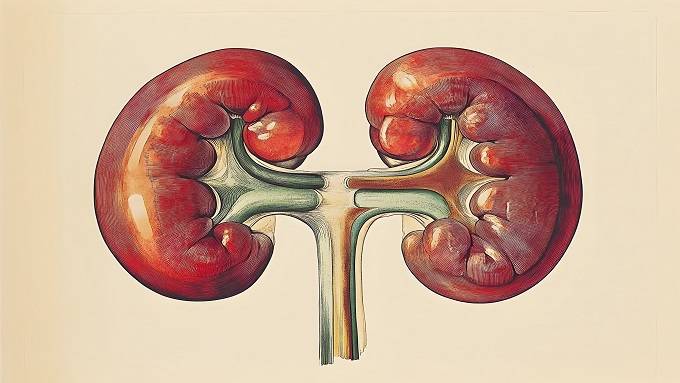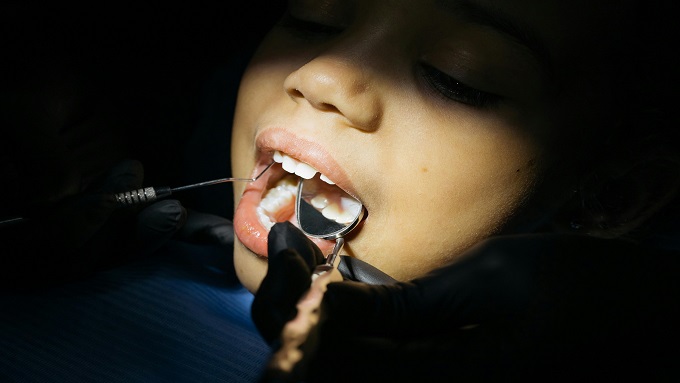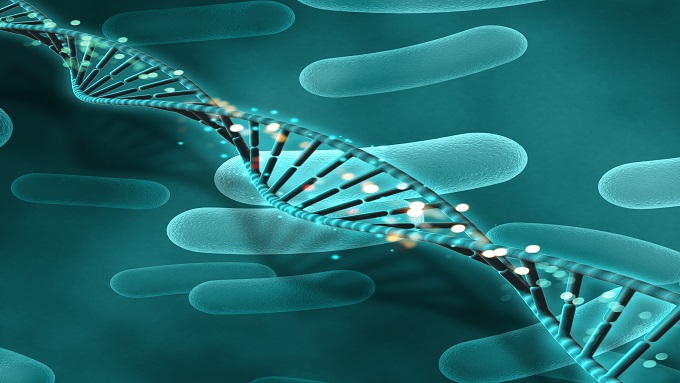CORRELATION BETWEEN HORMONAL STATUS OF ESTROGEN RECEPTOR AND MALIGNANCY DEGREE OF INVASIVE DUCTAL BREAST CANCER
Downloads
Background: Globocan data in 2018 shows the cancer incidence in Indonesia. The highest case in women is breast cancer. The chance of survival for patients with high malignancy (Grade III) is only 11.86%, while for patients with low malignancy (Grade I) can reach 71.69%. Estrogen exposure is a risk factor for breast cancer. The hormone causes its effect through the estrogen receptor which is a core protein. Patients with positive receptor have 5 and 10 years survival rate which is better than patients with negative estrogen receptor. Objective: To identify correlation between hormonal status of estrogen receptor and malignancy degree of invasive ductal breast cancer. Materials and Methods: This research was an observational analytic study. The sample used was patients' medical record data in 2015-2017 in Anatomic Pathology Unit, Central Laboratory Installation, Dr. Soetomo General Academic Hospital, Surabaya, Indonesia. Results: The data used were 694 patients medical record in 2015-2017. Approximately 56 patients (86%) had hormonal status of positive estrogen receptor with grade I cancer, 180 patients (70%) were in grade II, and 217 patients (45%) were in grade III. Approximately 9 patients (14%) had hormonal status of negative estrogen receptor with grade I cancer, 71 patients (28%) were in grade II, and 161 patients (34%) were in grade III. The result using Chi-Square test found Chi-Square value of 27.413 with a significance of 0.000 (p <0.01). Conclusion: There was a positive correlation between the hormonal status of estrogen receptor and malignancy degree of invasive ductal breast cancer.
Agustina, R. 2015. Peran derajat differensiasi histopatologik dan stadium klinis pada rekurensi kanker payudara [Role of histopathologival differentiation degree and clinical stage in breast cancer recurrence]. Majority. Downloaded 16 June 2021 from https://juke.kedokteran.unila.ac.id/ index.php/majority/article/ download/1461/1296.
Atanda, A., Imam, M., Umar, A., Yusuf, I., Bello, S., 2021. Audit of Nottingham system grades assigned to breast cancer cases in a Teaching Hospital. Atpjournal.org. Downloaded 16 June 2021 from https://www.atpjournal.org/article.asp?issn=22510060;year=2017;volume=8;issue=2;spage= 104;epage=107;aulast=Atanda.
Eroles, P., Bosch, A., Pérez-Fidalgo, J.A., Lluch, A., 2012. Molecular biology in breast cancer: Intrinsic subtypes and signaling pathways. Cancer Treatment Reviews, 38(6): 698-707.
Gity, M., Borhani, A., Mokri, M., Shakiba, M., Atri, M., Batavani, N., 2018. Sonographic features of estrogen-negative breast cancers: A correlation study with human epidermal growth factor type II overexpression. Journal of Diagnostic Medical Sonography, 34(6): 484-88.
Lakhani, S., Ellis, I., 2012. WHO Classification of Tumours of The Breast. Lyon: IARC.
Ministry of Health, Republic of Indonesia. 2019. Hari Kanker Sedunia 2019 [World Cancer Day 2019]. Jakarta. Downloaded 6 June 2019 from http://www.depkes.go.id/article/view/ 19020100003/hari-kanker-sedunia- 2019.html.
National Breast Cancer Foundation. 2016. Invasive Ductal Carcinoma. Downloaded 6 June 2017 from http://www.who.int/cancer/en/.
Pasaribu, E., Issakh, B., Maritska, Z., 2018. Trend kanker payudara di Semarang: Analisis tipe histologi dan molekuler [Breast cancer trend in Semarang: Analysis of histological and molecular type]. Jurnal Kedokteran dan Kesehatan: Publikasi Ilmiah Fakultas Kedokteran Universitas Sriwijaya, 5(3): 108-13.
Pecorino, L. 2012. Molecular Biology of Cancer. Oxford: Oxford University Press.
Price, S.A. Wilson, L.M. 2012. Patofisiologi: Konsep klinis proses-proses penyakit [Pathophysiology: Clinical concept of disease processes]. Jakarta: EGC
Safitriana, A., Yazid, N., Suprijono, A. Hubungan antara derajat diferensiasi dengan adanya reseptor estrogen pada penderita karsinoma payudara jenis duktus invasif [Correlation between differentiation degree and the presence of estrogen receptor in invasive ductal breast cancer patients]. Downloaded 7 June 2017 from Universitas Diponegoro. Available at http://eprints.undip.ac.id/22404/1/11_asli_-_hubungan_derajat_diferensiasi_-_noor_yazid_-_59-62.pdf.
WHO, 2017. Cancer. Downloaded 6 June 2017 from at http://www. who.int/cancer/en/ (Retrieved 6 June 2017).
Yang, Z., Li, N., Li, X., Lei, L., Wang, X., 2020. The prognostic impact of hormonal receptor and HER-2 expression discordance in metastatic breast cancer patients. OncoTargets and Therapy 13: 853-63.
Yue, W., Yager, J., Wang, J., Jupe, E., Santen, R. Estrogen receptor dependent and independent mechanisms of breast cancer carcinogenesis. Steroids, 78(2): 161-70.
Zanellia, Q.P. 2012. Hubungan status hormonal estrogen dengan derajat keganaan kanker payudara duktal invasif [Correlation between estrogen hormonal status and degree of malignancy of invasive ductal breast cancer]. Undergraduate Thesis. Surabaya: Universitas Airlangga.
Copyright (c) 2021 Windy Ayustyas Trisna, Sahudi Sahudi, Etty Hary Kusumastuti

This work is licensed under a Creative Commons Attribution 4.0 International License.
1. The journal allows the author(s) to hold the copyright of the article without restrictions.
2. The journal allows the author(s) to retain publishing rights without restrictions.
3. The legal formal aspect of journal publication accessibility refers to Creative Commons Attribution 4.0 International License (CC-BY).
































